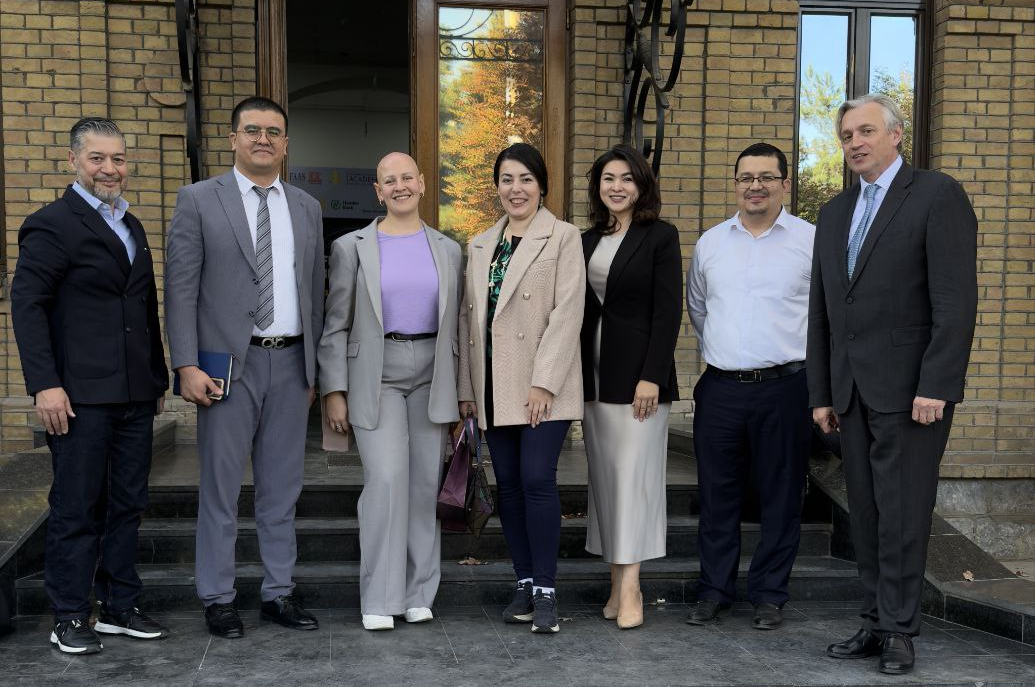
IDLab: Fascinating Research, Tough Deadlines, and Academic Drive
The International Laboratory of Intangible-driven Economy (IDLab) was established at the HSE campus in Perm 11 years ago. Its expertise in data processing and analysis allows researchers to combine fundamental studies with applied projects, including the development of risk and cybersecurity models for Sber. The head of the laboratory, Professor Petr Parshakov, and Senior Research Fellow Professor Mariya Molodchik spoke to the HSE News Service about IDLab’s work.

'I Have Always Been Fascinated by Deciphering: Reading Texts That No One in the Modern World Had Ever Read Before'
The deciphering of a recently discovered inscription at the Iraqi archaeological site of Tell Dehaila has led to a major breakthrough: the settlement was inhabited during the New Babylonian period, from the eighth to the sixth centuries BC, extending its known lifespan by more than a thousand years compared to earlier estimates. Ilya Arkhipov, Deputy Director and Associate Professor at the Institute for Oriental and Classical Studies of the HSE Faculty of Humanities, spoke to the HSE News Service about the Russian–Iraqi expedition, his passion for antiquity, and the teaching of ancient languages and Oriental history at HSE University.

‘Keep Working, Keep Publishing—Consistency Matters’
Ziyuan Zhu, from Beijing, China, is an international PhD student at the Institute for Public Administration and Governance at HSE University in Moscow. In this interview with the HSE News Service, Ziyuan talks about how studies can influence one’s outlook on life, comparing public service models in different countries, and why being a Chinese student in Russia is advantageous in research.

HSE University–St Petersburg Signs Three Cooperation Agreements with Leading Indian Universities
A delegation from HSE University–St Petersburg has signed cooperation agreements with key educational institutions in India during a visit to the country. Among the projects are new programmes for academic exchange and mobility.

'We View Mathematics as a Universal Language for Natural Sciences, Economics, and Computer Science'
The Laboratory for Geometric Algebra and Applications at the HSE Faculty of Economic Sciences is developing a universal language for mathematics, physics, and other exact and natural sciences. It is creating computational methods that are applied in geometry, physics, machine learning, engineering, computer science, and other fields. The laboratory’s staff, including doctoral students, have published numerous articles in leading scientific journals and have taken part in major international conferences. Dmitry Shirokov, Head of the Laboratory, spoke with the HSE News Service about their work.

HSE University and Banking and Finance Academy of Uzbekistan Sign Memorandum on Scientific Cooperation
The partnership aims to foster academic collaboration in the fields of global economics, sustainable development, and Islamic finance. Strengthening academic ties with Uzbekistan represents a promising direction for scientific exchanges and the implementation of international projects in sustainable development.

Under a Blooming Magnolia: How Russian and Chinese Scientists Create Solar Cells of the Future
Schola continues to introduce the winners of the International Academic Cooperation competition. In today's issue, Professor Andrey Vasenko, Deputy Head of the Scientific and Educational Laboratory of Quantum Nanoelectronics at Tikhonov Moscow Institute of Electronics and Mathematics (MIEM), speaks about the joint project between his laboratory and the Peking University research team— ‘Engineering of highly efficient and stable perovskite solar cells.’

'Even among Geniuses, Luck Plays a Role in Winning a Nobel Prize'
Denis Bodrov studies particle physics and works at one of the four electron–positron colliders in the world. In this interview with the HSE Young Scientists project, he talks about his efforts to go beyond the Standard Model, discusses tau leptons, and shares his affection for Moscow.

Mistakes That Explain Everything: Scientists Discuss the Future of Psycholinguistics
Today, global linguistics is undergoing a ‘multilingual revolution.’ The era of English-language dominance in the cognitive sciences is drawing to a close as researchers increasingly turn their attention to the diversity of world languages. Moreover, multilingualism is shifting from an exotic phenomenon to the norm—a change that is transforming our understanding of human cognitive abilities. The future of experimental linguistics was the focus of a recent discussion at HSE University.

HSE Scientists Develop Simulation Environment for Connected and Automated Vehicles
A team of researchers and students led by Vitaly Stepanyants, Lecturer at the School of Computer Engineering of HSE MIEM, has developed a solution implemented at the Laboratory of Computer-Aided Design Systems of HSE MIEM, headed by Alexandr Romanov and Alexandr Amerikanov. For the first time worldwide, this system enables detailed simultaneous modelling of both environmental perception by automated vehicles and the propagation of connected transport signals. To date, there are no open-source programs comparable to the proposed environment.

